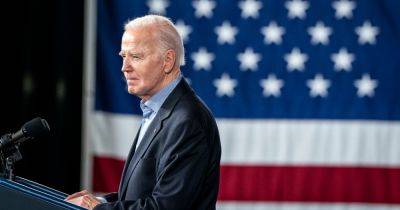A new generation of abortion voters
When the Supreme Court overturned Roe v. Wade in June 2022, it created shock waves that reverberated through American politics, helping Democrats stave off a Republican rout in the midterm elections.
But there were always questions over whether the issue would endure with the same intensity. Would abortion rights continue to motivate Democrats in the 2024 elections? Or would the issue follow the path of “parental rights” for Republicans — a seemingly potent rallying cry that quickly faded?
New polling from KFF, a nonprofit organization focused on health policy, offers an early signal. It suggests that the Supreme Court ruling fundamentally realigned U.S. politics, in a way that may be more durable than Republicans might like.
The KFF poll, conducted in late February, suggests that the end of Roe created a new class of energized abortion-rights voters.
About 12 percent of participants said abortion would be the “most important issue” to their vote in the 2024 election. That includes 28 percent of Black women, 22 percent of Democrats, 19 percent of women in states where abortion is banned and 17 percent of women of reproductive age (18-49). Of the voters who said abortion was the most important issue, two-thirds said it should be legal in all or most circumstances.
That’s a big change. For decades, Americans who opposed abortion were far more likely to describe themselves as single-issue voters. Even during the last presidential election in 2020, a larger share of self-described “pro-life” voters were more likely to say the issue was important to their vote than self-described “pro-choice” voters.







